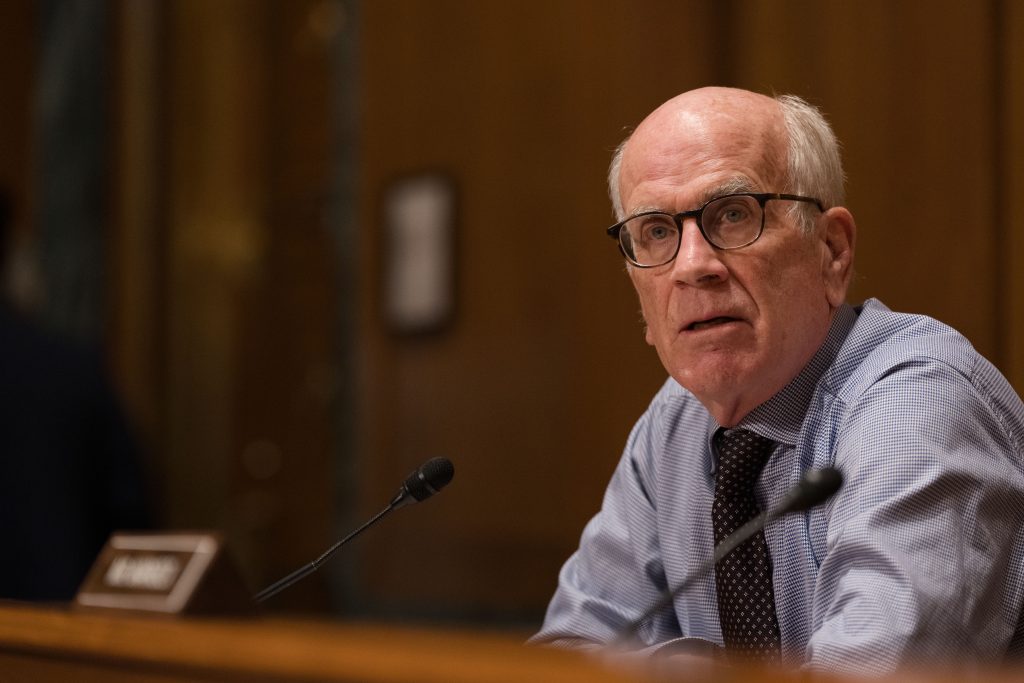WASHINGTON, D.C. – In the Senate Finance Committee today, U.S. Senator Peter Welch (D-Vt.) voted against advancing Robert F. Kennedy Jr.’s nomination to be the next Secretary of Health and Human Services (HHS). Mr. Kennedy would be tasked with leading HHS’ ten public health service agencies and three human services agencies. In remarks following his vote, Senator Welch cited concerns about Mr. Kennedy’s character, competence, and priorities, including his views on the efficacy of vaccines.
Welch: “After this hearing, I did not have confidence that Mr. Kennedy would be the one to lead us to a better future.”
Watch a video of his remarks below:

Read his remarks in the Senate Finance Committee below:
“I want a disrupter in the health care system, and the one leading it. I don’t want a destroyer.
“There’s three issues before any nominee that we have to consider: one is character, another is competence, and the third is priorities.
“We did not have Caroline Kennedy here, but she gave a statement. And she said that Bobby was able to attract people through the strength of his personality, his willingness to take risks, and break the rules. Those might be desirable qualities if it was accompanied by sober judgment and behavior, because the person who leads a major organization has to have the confidence of the people that work for him. And, frankly, some of the things that he did that [he] never explained—a chainsaw taking off the head of a whale, dumping a bear in Central Park for his own amusement—these are just weird things. We never really got into the character issue of what is required for a person who runs such a major department.
“The competence question, this is all on a wing and a prayer and a hope. There’s no record of Mr. Kennedy having experience in managing a large organization, in medicine. No experience with science. And none of the prior experiences required not only to run a major organization—Health and Human Services, but also the CDC, the NIH—and all the other organizations that are under the umbrella of health care.
“By the way, on the competence issue, let’s be candid. This was a deal where Mr. Kennedy was running for president as a Democrat. He lost. And he approached President Trump to make a deal, and for political reasons, the deal was made. And the appointment was going to be that he’s at Health and Human Services. The president has a right to make that deal and Mr. Kennedy can seek it, but it doesn’t translate into competence.
“The third is priorities. The priority for Mr. Kennedy is about the vaccines and his theory of that. We need reliable vaccines and not a conspiracy theorist on that. But, you know, the health care system is not working for the American people. It is too costly. Our employers who care deeply about providing employer-sponsored health care can’t afford these premiums. The folks who are getting their insurance on their own can’t afford it. Even Obamacare is getting so expensive because prices are escalating constantly with pharma expenses, with private equity getting into health care.
“Mr. Kennedy’s priority was about his view of vaccines. It was not about making health care more affordable and accessible. And in response to, really, a very direct and easy, open-ended question from Senator Cassidy, Mr. Kennedy showed a woeful ignorance even between the difference between Medicare and Medicaid.
“We have a health care system that is not serving—as it should—the interests of American citizens, of American businesses, and American taxpayers. And I, after this hearing, did not have confidence that Mr. Kennedy would be the one to lead us to a better future.”
Watch Senator Welch’s questioning of Mr. Kennedy during his confirmation hearing.
###
